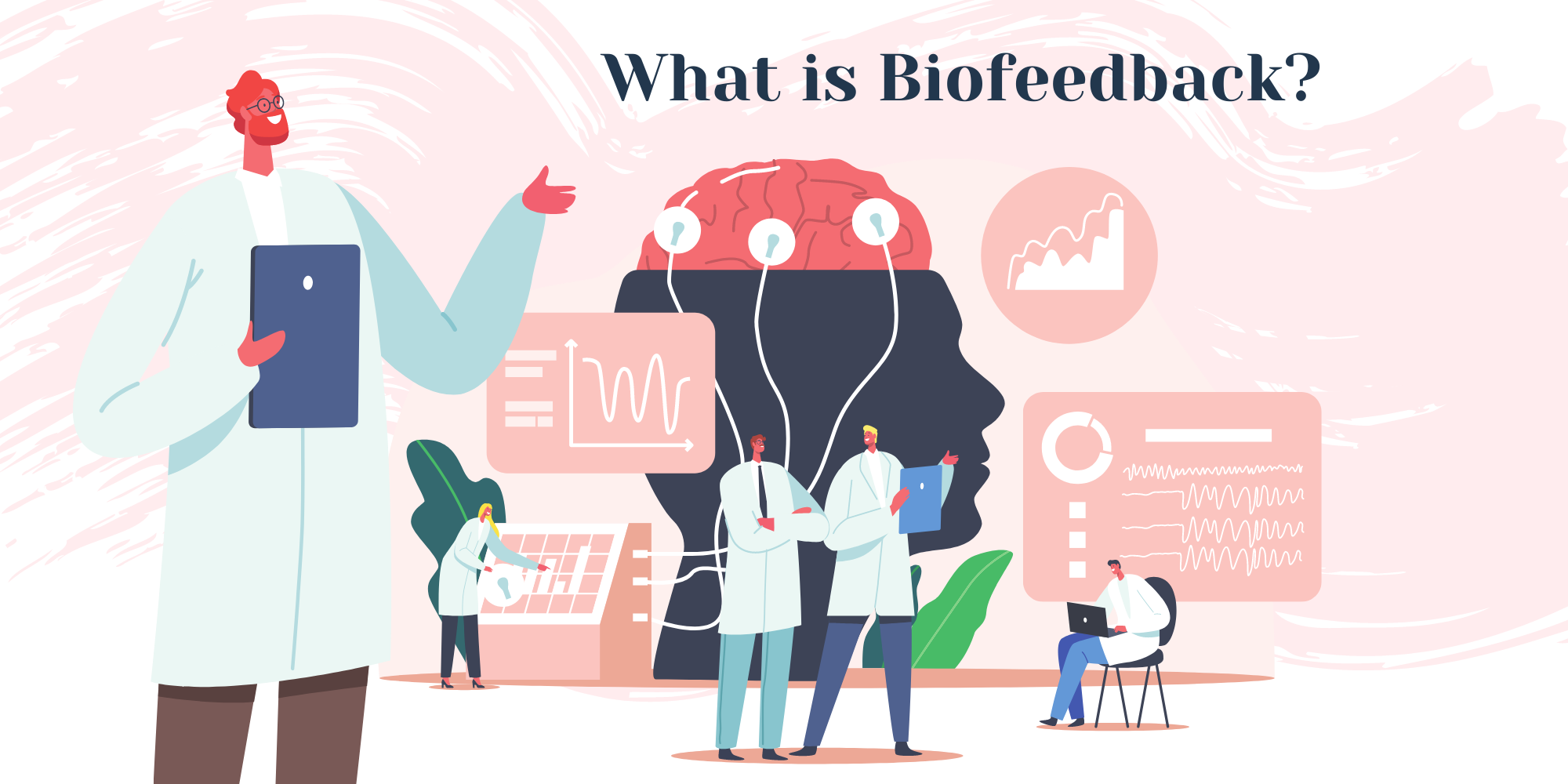Biofeedback is a mind-body technique that can improve physical and mental health. Though the technology has existed for some time, its efficacy in treating addiction and mental health is gaining popularity among professionals.
Table of Contents
Biofeedback incorporates technology like fMRI (functional magnetic resonance imaging) and EEG (electroencephalogram) scans. These technologies give clients a look at what's happening inside their brains. When clients see how their brains respond to certain triggers, they get a powerful window into what's going on deep inside — and learn techniques that can change their brains' behavior. These techniques can be simple, like deep breathing or guided meditation.
By adding this visualization, biofeedback therapy creates lasting change and helps patients become calmer and more mindful. Their biofeedback therapist can provide instructions that can bring lasting change within. That leads to a greater sense of control over their bodies and more mindful reactions to everyday stresses.
Biofeedback also adds a layer of play to therapy. In a sense, it turns therapy into a game, rendering deeply internal processes visible. Using interactive technology, clients can enjoy gaining control over their mental and physical reactions.
How Does Biofeedback Work?
Biofeedback measures a person's physiological signals. These signals can be signs of physical stress or anxiety in real time, and a practitioner can read them to identify underlying issues. They can then suggest subtle physiological changes. These could include changing a patient's posture or taking longer and slower breaths. They might be given a guided meditation or taught techniques to relax their muscles progressively.
As these take effect, a practitioner can keep measuring the body's relevant signals to see if they've landed on the correct adjustment. By the end of the session, the patient has tools that work on their body, which they can use to better cope with life's stresses.
Of course, most people know they need to breathe more deeply and slowly. But readings can give patients a tangible measure with which to work. Seeing is believing, and watching their heart rate slow down or muscles unclench provides a visceral sense of how small physiological changes can impact mental (and later physical) health issues like stress and anxiety.

Breathing
Shallow breathing is associated with panic and anxiety. If a patient's breathing is rapid, a practitioner will guide the patient in slowing it down and taking deep breaths, helping the body get back to a state of homeostasis.
Heart rate
An average heart rate ranges from 60 to 100 beats per minute. In general, the lower and more even the resting heart rate, the more relaxed and healthy a person is. If the heartbeat is irregular or too fast, it signals to the practitioner that the patient is anxious or the heart is otherwise working too fast. This can suggest weight control or stress management is needed.
Temperature
A fever can mean the body is working overtime to fight infection. Sometimes, a too-high temperature can also be a sign of depression.
Muscle Tension
Tense muscles and fascia are obvious indicators of stress and possibly anxiety.
Sweat
Sweating is usually the body's way of regulating temperature. But hyperhidrosis, or excessive sweat, can indicate anxiety or depression.
Types of Biofeedback
There are several varieties of biofeedback that measure different physiological signals, including:

The type of biofeedback a practitioner suggests will depend on a patient's symptoms. EMGs, for example, can be used for back pain or anxiety. Thermal biofeedback can measure headache signals, but headaches can have multiple causes, and different physiological measures may be needed to determine mental stress or physical causes.
What Can Biofeedback Treat?
Biofeedback therapy alleviates pain noninvasively. It does not involve medication and typically does not take many sessions to work. It's been used successfully to:

Biofeedback therapy can promote relaxation and lower stress, which has major health benefits and can reduce the risk of later serious diseases. It's also beneficial against gastrointestinal disorders like fecal incontinence and epilepsy treatment. It effectively treats chronic anxiety and tension, the bedrock of many other ailments.
Patients can seek biofeedback therapy for a wide number of problems, including:

Biofeedback may also help with:

These issues show a clear relationship between mental processes and physical pain. Habits can make a big difference in the quality of life with these conditions, and biofeedback therapy can show patients how to alter their behavior to make positive changes.
Biofeedback therapy recognizes that physical and mental health are closely intertwined, and that's an insight recognized by leading medical institutions. The goal is for patients to understand this as well, so they can take advantage of subtle changes for significant results.
How To Get Started With Biofeedback
The best way to get started is with a trained, skilled practitioner who can monitor a body's subtle signals with high-tech, sensitive equipment. Experience can help them determine the right kind of biofeedback therapy, and there are biofeedback therapists who specialize in different conditions.
Home-use biofeedback devices are available as apps and wearable devices that monitor physiological signals like breathing and heart rate. But since biofeedback is a new kind of therapy for many, going to a trained biofeedback therapist may provide the best start.
Biofeedback therapists likely have access to more sophisticated, professional-grade measuring equipment and can also suggest proven techniques to improve patients' wellness.
Find a Biofeedback Practitioner in Sofia
By creating conscious control over processes that are usually automatic, patients can feel empowered to improve their health and habits. Sofia Health is a great resource that connects practitioners with patients and can locate the best biofeedback therapy online. We can help you find excellent care providers who are local, affordable, and right for you.
Be smart about your health and visit Sofia today to find a biofeedback practitioner who can open up a world of health possibilities!








